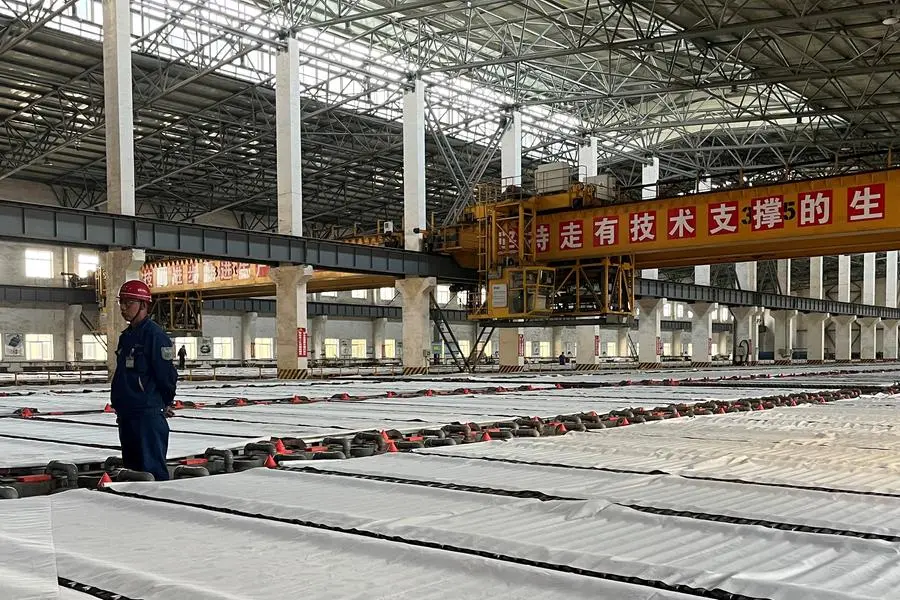PHOTO
LONDON - Copper prices edged higher on Monday as the dollar weakened, breaking two sessions of losses, but worries about the Middle East crisis and global growth weighed on the market.
Three-month copper on the London Metal Exchange rose 0.6% to $7,993 per metric ton in official open-outcry trading, having shed 10% since the start of August.
The dollar index drifted lower but remained near a one-week high with fragile sentiment against a backdrop of conflict in the Middle East supporting demand for the safe-haven currency.
A weaker dollar makes commodities priced in the U.S. currency less expensive for buyers using other currencies.
"The positioning in copper is still short, even though it's much reduced, but it still indicates that traders are looking for lower prices," said Ole Hansen, head of commodity strategy at Saxo Bank in Copenhagen.
"There's worry that if there's a widening Middle East conflict, you could see crude oil prices blow out and that would increase worries about a recession and would not be good for metals in general."
Disappointment that top metals consumer China failed to cut rates and a weaker yuan, which hit a two-week low, was also weighing on metals prices, he added.
China's economy is expected to have slowed in the third quarter, data is due to show on Wednesday, according to a Reuters poll.
Helping to support copper, however, has been stronger than expected physical demand in top metals consumer China as September copper imports by China hit an intra-year high, although still lower than last year's volume.
Copper demand has been supported by strong government-led infrastructure investment in China, particularly in renewable power, offsetting ongoing weakness in the property sector, analysts at Macquarie said in a report.
Among other metals, LME aluminium dipped 0.4% in official activity to $2,191 per ton while zinc climbed 0.4% to $2,455, lead added 0.2% to $2,046, nickel gained 1.4% to $18,800 and tin rose 0.1% to $25,100.
($1 = 7.3096 Chinese yuan renminbi)
(Reporting by Eric Onstad; Additional reporting by Siyi Liu in Beijing; editing by David Evans and Jason Neely)





















